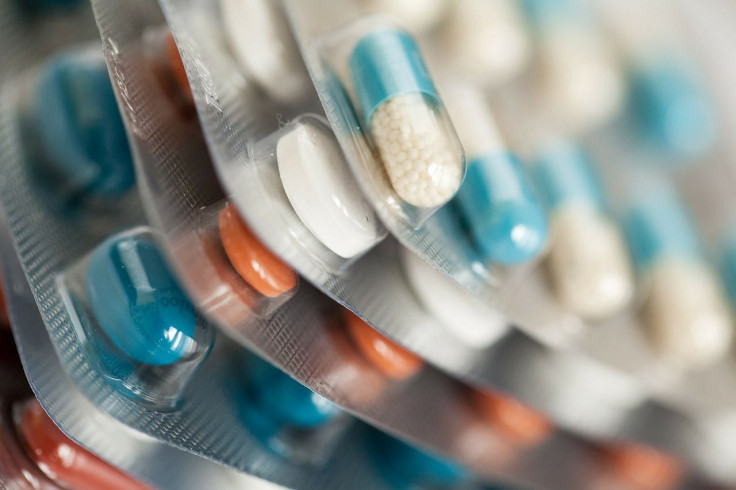What Are Superbugs? Silent, Invisible Killer Can Be Squashed With Global Efforts For New Antibiotics

There's a silent, invisible killer among us. Walls, borders, even oceans can't stop it.
It's a drug-resistant microbe. Trillions of bacteria and fungi species are constantly evolving to resist treatments. These "superbugs" kill 700,000 people worldwide each year.
The crisis is only getting worse. Pharmaceutical companies aren't inventing enough new cures to keep pace with drug-resistant infections. Since 1984, no truly novel antimicrobial treatments for U.S. hospital superbugs have hit the market.
Antimicrobial resistance, or AMR, infects nearly 3 million people in the United States alone, according to a new report from the Centers for Disease Control and Prevention. It's time for the international community to help researchers develop cures for these tiny but deadly organisms.
AMR could change modern medicine as we know it, as common infections and injuries once again become death sentences. Doctors rely on antimicrobials to prevent infections after nearly every medical procedure -- from hip replacements to organ transplants. If these drugs lose their efficacy, doctors will consider simple surgeries far too risky.
Managing AMR outbreaks can require a hospital to close ICUs and delay lifesaving surgeries.
AMR can also kill cancer patients in droves. Chemotherapy, radiation, and other oncology treatments suppress patients' immune systems, leaving them susceptible to infections. Already, in India, more leukemia patients perish from bloodstream infections than from the tumors themselves.
Thanks to our globalized economy, we are all at risk: drug-resistant bacteria can spread from country to country in a matter of days. Simply put, a global crisis requires a global solution.
The international medical community can help tackle AMR by curbing antibiotic overuse. Every time patients take antibiotics, some bacteria may survive. These survivors then adapt and multiply. Other bacteria share resistant genes promiscuously, making everything worse. Ultimately, they can develop immunity to the original antibiotic. It's up to doctors and regulators to slow the spread of these superbugs by ensuring patients only take antimicrobials when absolutely necessary.
Unfortunately, overuse remains rampant. In the United States, a third of outpatient antibiotic prescriptions are unnecessary. In countries like Thailand, patients don't even need a doctor's prescription to acquire antibiotics. Even in nations that theoretically require prescriptions, patients can easily convince their local pharmacists to bend the rules.
Curbing this misuse will impede, but not halt, the spread of superbugs -- we also need new antibiotics.
Right now, drug firms have little financial incentive to develop new antibiotics. Bringing a new antibiotic to market costs hundreds of millions of dollars. Drug companies stand virtually zero chance of recouping that massive investment on antibiotics, since any new treatments would be sold in limited doses and reserved for emergency situations.
These upside-down economics explain why the antimicrobial pipeline is running dry. Consider that the United States alone is developing 1,120 cancer drugs. Yet researchers are conducting clinical trials on just 42 experimental antibiotics worldwide. Last year, three top drug firms shuttered their antibiotic research programs.
Reversing this trend will take an international response. And as a global leader in drug development, the United States can spearhead that response. Any actions we take -- or don't take -- regarding AMR will serve as a model for the rest of the world.
Congress can start by passing the Developing an Innovative Strategy for Antimicrobial Resistant Microorganisms (DISARM) Act. The bill would let Medicare pay hospitals appropriately for responsible use of new antimicrobials. Hospitals would be incentivized to use optimal treatments; and researchers would be incentivized to develop new cures.
But DISARM is just one possible solution. Policymakers can also offer grants and rewards to researchers who successfully develop new antibiotics. The Review on Antimicrobial Resistance, a UK-commissioned global AMR analysis, recommends a market entry award of at least $1 billion for any company that brings a novel antimicrobial to market.
The cost of establishing such rewards pales in comparison to the cost of inaction. By one estimate, the AMR crisis could cost the global economy $100 trillion in lost productivity by 2050.
Unless scientists develop new treatments, drug-resistant microbes will kill millions of people every year. Let's hope world leaders wake up and respond to this threat -- before it's too late.
Kevin Outterson, J.D., is co-director of the health law program and professor at Boston University School of Law and the executive director of Combating Antibiotic Resistant Bacteria Biopharmaceutical Accelerator (CARB-X). His views are personal, and don’t necessarily reflect the views of CARB-X or any CARB-X funder. John Rex is Chief Medical Officer and Director of F2G, Limited, an advisor to Wellcome Trust, and an Adjunct Professor of Medicine at McGovern Medical School, University of Texas Health Science Center at Houston.
© Copyright IBTimes 2024. All rights reserved.





















